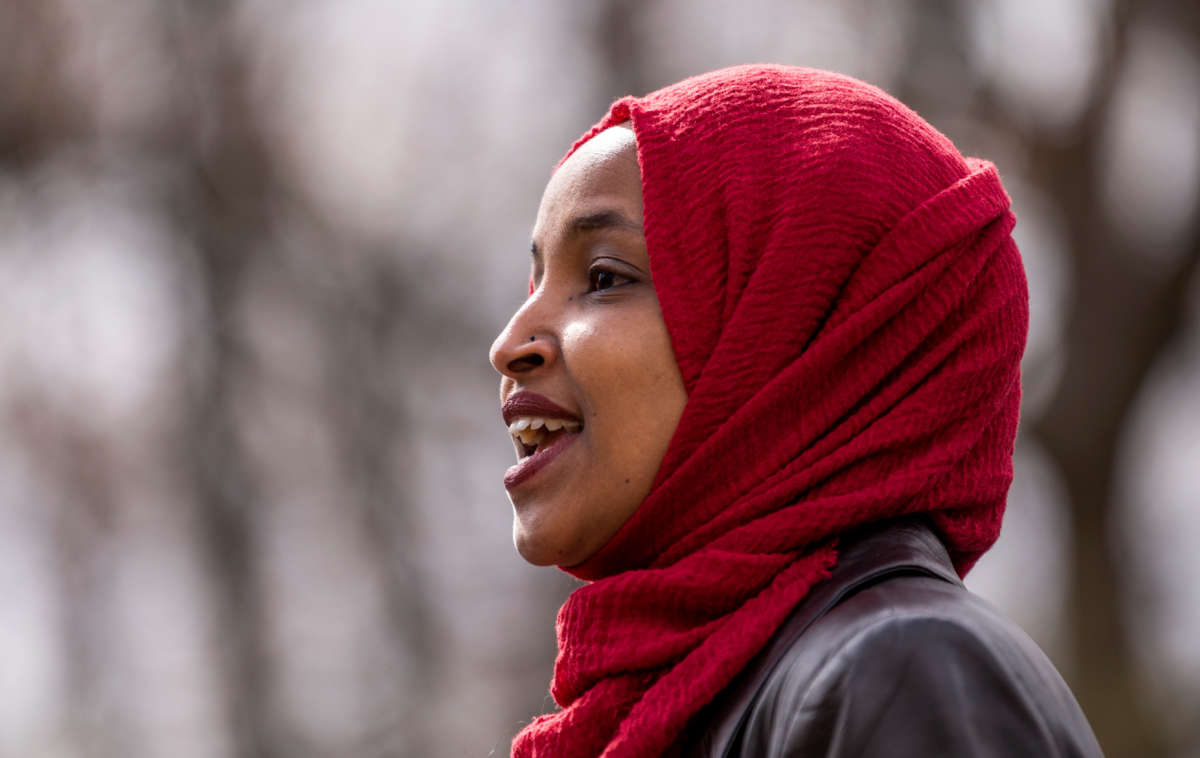Rep. Ilhan Omar (D-Minnesota) plans to introduce a bill that would create a guaranteed income program that would send $1,200 a month to most Americans. The bill, she argues, could be a major step toward ending poverty in the U.S.
The SUPPORT Act would send $1,200 a month to U.S. adults making up to $75,000 a year, or a head of household making up to $112,500 a year, with supplemental income for children, according to HuffPost. The bill would phase out payments at higher income brackets.
The bill strives to include groups that are traditionally left out of government aid like the recent COVID stimulus checks. Undocumented immigrants who file taxes with an ITIN would be included. People without banking accounts or people experiencing homelessness could also access payments through a banking system run by the United States Postal Service.
The SUPPORT Act has been cosponsored by Reps. Cori Bush (D-Missouri), Pramila Jayapal (D-Washington), Dwight Evans (D-Pennsylvania) and Jamaal Bowman (D-New York). It faces long odds in Congress.
“Poverty is a choice. For too long we have prioritized endless growth while millions are homeless, hungry or without healthcare,” Omar said in a statement, per HuffPost. “We as a nation have the ability to make sure everyone has their basic needs like food, housing and healthcare met.”
The state of poverty and debt in the U.S. is dire. The gap between the highest and lowest earners is growing, while people working on the dismally low federal minimum wage are struggling to meet their needs. Tax cuts for the rich, meanwhile, have allowed the rich to avoid paying income tax altogether some years, creating a stark contrast between the wealthy and the poor.
A study by the Federal Reserve published in 2019 found that almost 40 percent of Americans didn’t have $400 in savings, leaving them vulnerable if unexpected expenses were to arise.
Omar argues that her bill could help reverse poverty in the U.S., pointing to the stimulus checks sent out earlier this year and last. Indeed, a recent study of the effects of the COVID stimulus bill passed earlier this year found that poverty dropped to the lowest level on record in the U.S. The largest contributor to the reduction in poverty is from the stimulus checks — a similar program to what Omar is proposing.
Not only did the checks reduce poverty, they also helped families stay afloat through the pandemic. Half of Americans used the $1,400 checks sent by the government earlier this year to pay debts. Many others used the checks to pay off bills, relieving a burden from families while the country was, and still is, being crushed by COVID-19.
Universal basic income has been tried before in the U.S. Recently, Stockton, California, experimented with the idea, giving randomly selected members of the public $500 a month with no strings attached for two years. The cash stipends benefitted or increased participant’s financial stability and career prospects. It also helped better the participant’s overall well-being.
Similar programs have had success in other countries. Countries like Finland and South Korea have had similar results from guaranteed income programs, which freed up participants to pursue goals like starting a business or attending school.
Press freedom is under attack
As Trump cracks down on political speech, independent media is increasingly necessary.
Truthout produces reporting you won’t see in the mainstream: journalism from the frontlines of global conflict, interviews with grassroots movement leaders, high-quality legal analysis and more.
Our work is possible thanks to reader support. Help Truthout catalyze change and social justice — make a tax-deductible monthly or one-time donation today.
